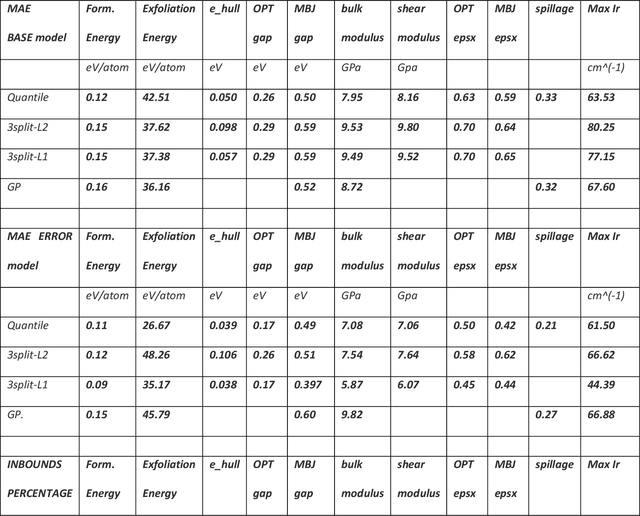Brian De Cost
Uncertainty Prediction for Machine Learning Models of Material Properties
Jul 16, 2021



Abstract:Uncertainty quantification in Artificial Intelligence (AI)-based predictions of material properties is of immense importance for the success and reliability of AI applications in material science. While confidence intervals are commonly reported for machine learning (ML) models, prediction intervals, i.e., the evaluation of the uncertainty on each prediction, are seldomly available. In this work we compare 3 different approaches to obtain such individual uncertainty, testing them on 12 ML-physical properties. Specifically, we investigated using the Quantile loss function, machine learning the prediction intervals directly and using Gaussian Processes. We identify each approachs advantages and disadvantages and end up slightly favoring the modeling of the individual uncertainties directly, as it is the easiest to fit and, in most cases, minimizes over-and under-estimation of the predicted errors. All data for training and testing were taken from the publicly available JARVIS-DFT database, and the codes developed for computing the prediction intervals are available through JARVIS-Tools.
 Add to Chrome
Add to Chrome Add to Firefox
Add to Firefox Add to Edge
Add to Edge